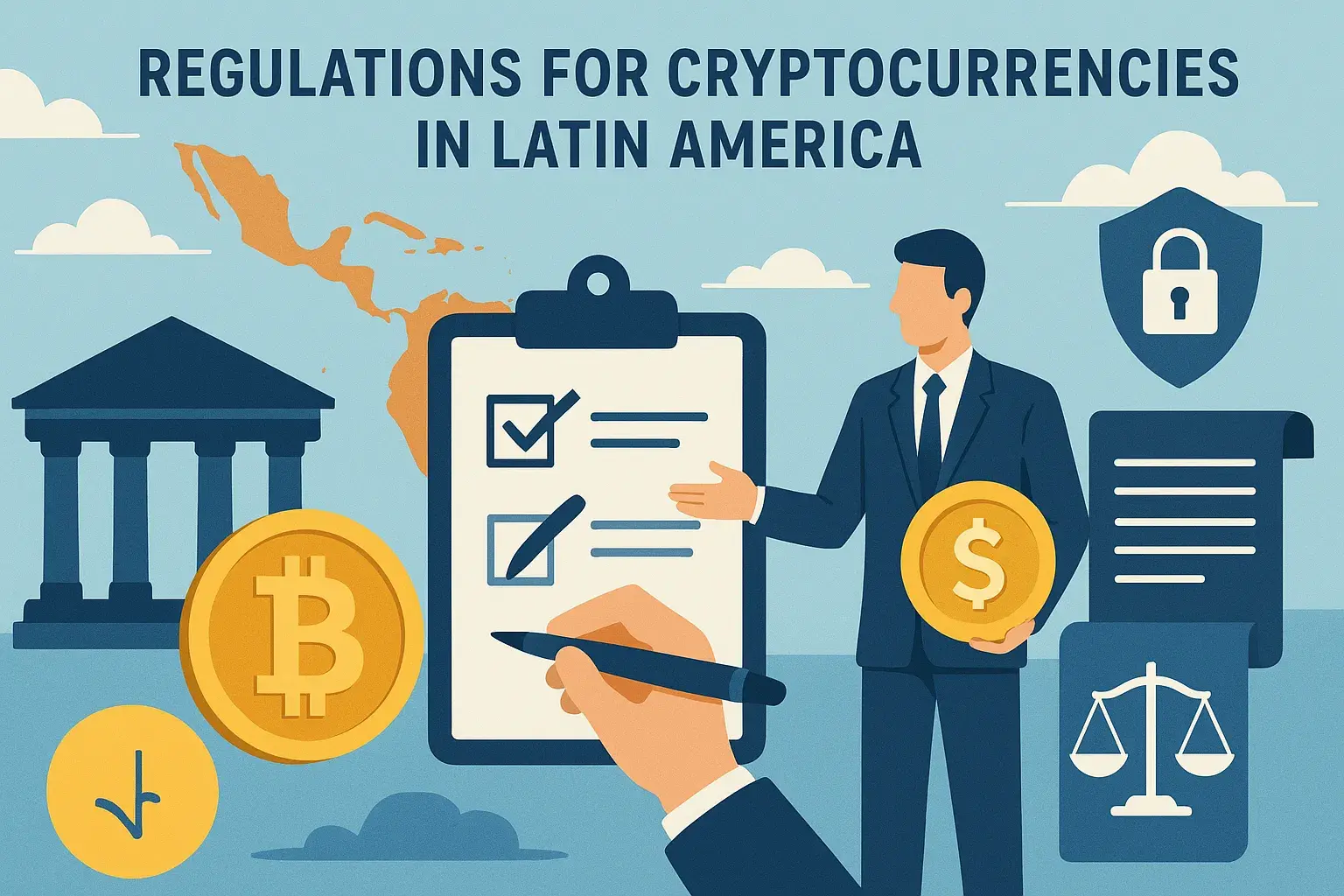The Fiscal Siege Tightens: Mexico’s SAT and Cryptocurrency Regulation in Latin America

The regulatory and tax landscape for cryptocurrencies in Latin America is moving from a gray area to one of increasing clarity and strict enforcement. Mexico has taken a firm step in this direction, with the Tax Administration Service (SAT) confirming that profits derived from cryptocurrencies must be declared as “transfers of virtual assets,” requiring detailed reporting in annual income tax returns. This move places Mexico at the forefront of crypto taxation in the region, a progress also seen in countries like Argentina and Chile.
The growing adoption of digital assets has forced governments to act. Where there was once uncertainty, legal frameworks are now being established that define cryptocurrency regulations, their tax treatment, and their role within the financial system. For investors and companies operating in the region, understanding and adapting to these new cryptocurrency regulations is not just a matter of compliance, but of survival.
Mexico: The Fine Detail of Crypto Oversight
The Mexican SAT’s directive is an important milestone. By classifying cryptocurrency gains as virtual asset transfers, the tax agency is establishing a clear mechanism for collecting capital gains taxes. This means that every cryptocurrency sale or exchange transaction that results in a profit is subject to tax.
Implications of the Detailed Declaration
The requirement for “detailed reporting in annual income statements” has profound implications for the average user:
- Transaction Records: Investors should keep thorough records of the acquisition cost basis, the sales price, and the dates of all their transactions. This is crucial to accurately calculating capital gains or losses.
- Individual Responsibility: Unlike traditional securities markets where brokerage firms act as withholding agents, the responsibility for filing and paying falls directly on the taxpayer.
- Pressure on Exchanges: Although the SAT is targeting taxpayers, implicit regulatory pressure will force Mexican exchanges and those operating in the country to improve their transaction reporting to authorities, facilitating data cross-referencing.
The implementation of these cryptocurrency regulations seeks to eliminate the notion that the crypto market is a tax haven free of obligations. The message is clear: if you make a profit, you must pay taxes.
Latin America in the Regulatory Spectrum
Regulatory progress in Mexico is not an isolated case, but rather part of a broader regional trend. Latin America is moving toward legal clarity, albeit at different speeds and with different approaches.
Leaders of Regulation and Established Progress
Along with Mexico, countries like Argentina and Chile are leading the way in structuring legal frameworks for digital assets.
- Argentina: Given its high adoption rate of cryptocurrencies as a hedge against inflation and capital controls, Argentina has been making progress in taxation. Cryptocurrency regulations have focused on capital gains taxes and transaction monitoring through regulations from the Central Bank and the National Securities Commission ( CNV ). There is an ongoing effort to integrate virtual assets into existing tax categories.
- Chile: Chile has distinguished itself with its progressive approach to the fintech sector. Cryptocurrency regulations have been developed within the context of the Fintech Law, which seeks to define, supervise, and license crypto-asset service providers, promoting security without stifling innovation. The Central Bank of Chile has also been investigating the possibility of a Central Bank Digital Currency ( CBDC ).
Legislative Improvement in Key Countries
While some countries are leading the way with active legislation, others, such as Brazil, Peru, and Uruguay, are in a crucial stage of “refining their pending cryptoasset legislation.”
- Brazil: Brazil is seen as a sleeping giant. Its cryptoasset bill seeks to create a comprehensive framework for the supervision and licensing of exchanges and service providers. Future cryptocurrency regulations in Brazil could focus on consumer protection and anti-money laundering, with a pragmatic approach to innovation. Advances in the digital currency (CBDC) will also drive the need for clear legislation for the rest of the ecosystem.
- Peru and Uruguay: These countries are working to adapt their existing anti-money laundering and counter-terrorism financing (AML/CFT) regulations to the reality of virtual assets. The focus at this stage is to ensure that exchanges and platforms comply with international standards, laying the groundwork for broader and more specific future cryptocurrency regulations.
Impact on Investors and Mass Adoption
The implementation of cryptocurrency regulations is a double-edged sword. On the one hand, it imposes tax and compliance burdens on investors. On the other hand, it offers a layer of legitimacy and security that can attract a broader, institutional audience.
The Institutional Legitimacy Factor
Regulatory clarity is a prerequisite for the entry of large institutional investors and investment funds. When cryptocurrency regulations are clear on how assets should be handled and taxed, legal and operational risk for traditional players is reduced. The adoption of legal frameworks transforms cryptocurrencies from a “niche asset” into a recognized “asset class.”
Challenges for Retail Compliance
The biggest challenge lies with retail investors. Many cryptocurrency users are unaware of the complexities of capital gains taxation, especially in the context of decentralized finance (DeFi), where transactions can be numerous and complex to track. The sector will need more accessible crypto accounting software tools and clear tax guidelines to prevent unintentional tax evasion.
Stay informed and read the latest cryptocurrency news in real time!
Conclusion: Towards a Legally Sustainable Ecosystem
Latin America is on the path to regulatory maturity. The movements in Mexico, Argentina, and Chile, along with legislative improvements in Brazil, Peru, and Uruguay, signal an institutional acceptance of cryptocurrencies, not as a passing fad, but as a financial reality.
The era of legal ambiguity is ending. New cryptocurrency regulations are establishing the ground rules that, while imposing tax obligations, are also essential for building a legally sustainable ecosystem that is attractive for investment and safe for consumers. At CriptoMedios.com, we will continue to provide the information and analysis necessary to successfully navigate this new environment.






